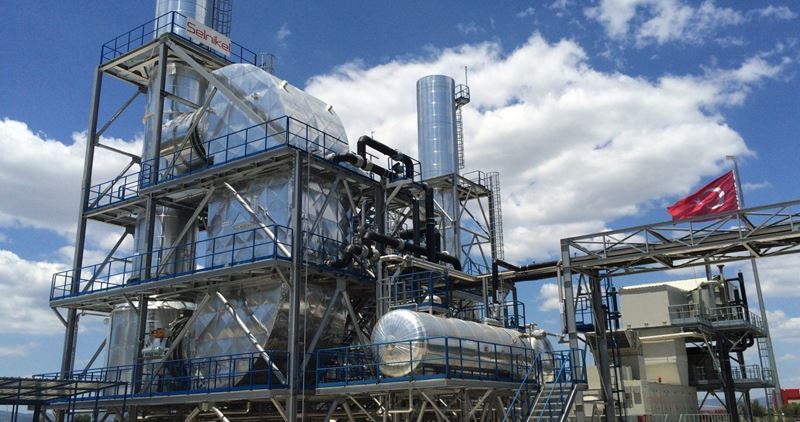While some heat is generally used in production units that operate using high heat, such as iron and steel and glass production, flue gases are mostly utilised to increase the available heat.
In order to transform the energy in unlimited natural resources such as water, wind and sun, which are used instead of this method called "waste heat", into the form of energy that can be used in modern life, the use of wastes reaching thousands of tonnes in energy production is also increasing.
Electricity can be generated from biomass and waste heat in almost all regions of Turkey. As of the end of March, the installed capacity of electricity from biomass reached 2,380 megawatts with power plants located in 74 provinces.
Biomass, a sustainable and renewable resource, stands out as a type of energy obtained by burning organic materials. Especially crop residues, forest products, aquatic plants, commercial or domestic wastes can be used as fuel in the operation of the system.
According to a compilation of data from the Ministry of Energy and Natural Resources, Turkey's installed electricity capacity reached 104,487 megawatts as of the end of April. The share of biomass and waste heat energy in total installed electricity capacity was 2.27 per cent.
According to the Biomass Energy Potential Atlas of the Ministry of Energy and Natural Resources, the total economic energy equivalent of the wastes that can be collected is calculated as approximately 3.9 million tonnes of oil equivalent per year.
Istanbul, Ankara and Manisa are in the top three in electricity generation from biomass and waste heat, and 48 provinces have installed capacity of 10 megawatts or more.
While Turkey's biomass and waste heat energy reaches a capacity of 2,380 megawatts with power plants in 74 provinces, Istanbul ranks first with the highest capacity and electricity generation.










Comments
No comment yet.